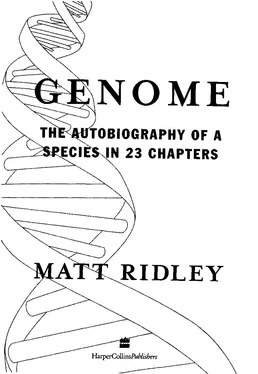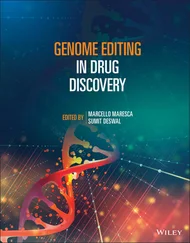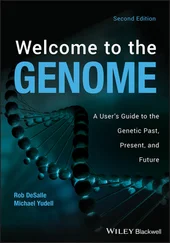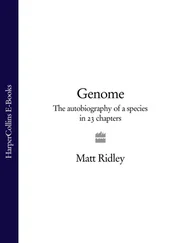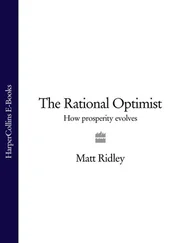Genome - Matt Ridley
Здесь есть возможность читать онлайн «Genome - Matt Ridley» — ознакомительный отрывок электронной книги совершенно бесплатно, а после прочтения отрывка купить полную версию. В некоторых случаях можно слушать аудио, скачать через торрент в формате fb2 и присутствует краткое содержание. Жанр: Старинная литература, на английском языке. Описание произведения, (предисловие) а так же отзывы посетителей доступны на портале библиотеки ЛибКат.
- Название:Matt Ridley
- Автор:
- Жанр:
- Год:неизвестен
- ISBN:нет данных
- Рейтинг книги:5 / 5. Голосов: 1
-
Избранное:Добавить в избранное
- Отзывы:
-
Ваша оценка:
- 100
- 1
- 2
- 3
- 4
- 5
Matt Ridley: краткое содержание, описание и аннотация
Предлагаем к чтению аннотацию, описание, краткое содержание или предисловие (зависит от того, что написал сам автор книги «Matt Ridley»). Если вы не нашли необходимую информацию о книге — напишите в комментариях, мы постараемся отыскать её.
Matt Ridley — читать онлайн ознакомительный отрывок
Ниже представлен текст книги, разбитый по страницам. Система сохранения места последней прочитанной страницы, позволяет с удобством читать онлайн бесплатно книгу «Matt Ridley», без необходимости каждый раз заново искать на чём Вы остановились. Поставьте закладку, и сможете в любой момент перейти на страницу, на которой закончили чтение.
Интервал:
Закладка:
Not until 1997 did anybody check the facts. When Milton Diamond and Keith Sigmundson tracked down Joan, they found a man, happily married to a woman. His story was very different from that told by Money. He had always felt deeply unhappy about something as a child and had always wanted to wear trousers, mix with boys and urinate standing up. At the age of fourteen he was told by his parents what had happened, which brought great relief. He ceased hormonal treatment, changed his name back to John, resumed the life of a man, had his breasts removed and at the age of twenty-five married a woman and adopted her children. Held up as a proof of socially constructed gender roles, he proved the exact opposite: that nature does play a role in gender. The evidence from zoology has always pointed that way: male behaviour is systematically different from female behaviour in most species and the difference has an innate component. The brain is an organ with innate gender. The evidence from the genome, from imprinted genes and genes for sex-linked behaviours, now points to the same conclusion.18
C H R O M O S O M E 1 6
M e m o r y
Heredity provides for the modification of its own machinery. James Mark Baldwin, 1896
The human genome is a book. By reading it carefully from beginning to end, taking due account of anomalies like imprinting, a skilful technician could make a complete human body. Given the right mechanism for reading and interpreting the book, an accomplished modern Frankenstein could carry out the feat. But what then? He would have made a human body and imbued it with the elixir of life, but for it to be truly alive it would have to do more than exist.
It would have to adapt, to change and to respond. It would have to gain its autonomy. It would have to escape Frankenstein's control.
There is a sense in which the genes, like the hapless medical student in Mary Shelley's story, must lose control of their own creation.
They must set it free to find its own path through life. The genome does not tell the heart when to beat, nor the eye when to blink, nor the mind when to think. Even if the genes do set some of the parameters of personality, intelligence and human nature with surprising precision, they know when to delegate. Here on chromosome 2 2 0 G E N O M E
16 lie some of the great delegators: genes that allow learning and memory.
We human beings may be determined to a surprising extent by the dictates of our genes, but we are determined even more by what we have learnt in our lifetimes. The genome is an information-processing computer that extracts useful information from the world by natural selection and embodies that information in its designs.
Evolution is just terribly slow at processing the information, needing several generations for every change. Little wonder that the genome has found it helpful to invent a much faster machine, whose job is to extract information from the world in a matter of minutes or seconds and embody that information in behaviour - the brain.
Your genome supplies you with the nerves to tell when your hand is hot. Your brain supplies you with the action to remove your hand from the stove-top.
The subject of learning lies in the provinces of neurosciences and psychology. It is the opposite of instinct. Instinct is genetically-determined behaviour; learning is behaviour modified by experience.
The two have little in common, or so the behaviourist school of psychology would have had us all believe during much of the twentieth century. But why are some things learnt and others instinctive?
Why is language an instinct, while dialect and vocabulary are learnt?
James Mark Baldwin, the hero of this chapter, was an obscure American evolutionary theorist of the last century, who wrote an article in 1896 summarising a dense and philosophical argument that had little influence at the time, or indeed at any time during the subsequent ninety-one years. But by a stroke of good fortune, he was plucked from obscurity by a group of computer scientists in the late 1980s, who decided his argument was of great relevance to their problem of teaching computers how to learn.1
What Baldwin wrestled with was the question of why something is learnt by an individual in his lifetime rather than pre-programmed as an instinct. There is a commonly held belief that learning is good, instinct bad - or, rather, that learning is advanced and instinct primitive. It is therefore a mark of human rank that we need to M E M O R Y 2 2 1
learn all sorts of things that come naturally to animals. Artificial-Intelligence researchers, following this tradition, quickly placed learning on a pinnacle: their goal was the general-purpose learning machine. But this is just a factual mistake. Human beings achieve by instinct the same things that animals do. We crawl, stand, walk, cry and blink in just as instinctive a way as a chick. We employ learning only for the extra things we have grafted on to the animal instincts: things like reading, driving, banking and shopping. 'The main function of consciousness', wrote Baldwin, 'is to enable [the child] to learn things which natural heredity fails to transmit.'
And by forcing ourselves to learn something, we place ourselves in a selective environment that puts a premium on a future instinctive solution to the problem. Thus, learning gradually gives way to instinct. In just the same way, as I suggested in the chapter on chromosome 13, the invention of dairy farming presented the body with the problem of the indigestibility of lactose. The first solution was cultural - to make cheese — but later the body evolved an innate solution by retaining lactase production into adulthood. Perhaps even literacy would become innate eventually if illiterate people were at a reproductive disadvantage for long enough. In effect, since the process of natural selection is one of extracting useful information from the environment and encoding it in the genes, there is a sense in which you can look on the human genome as four billion years'
worth of accumulated learning.
However, there comes a limit to the advantages of making things innate. In the case of spoken language, where we have a strong instinct, but a flexible one, it would clearly be madness for natural selection to go the whole hog and make even the vocabulary of the language instinctive. That way language would have been far too inflexible a tool: lacking a word for computer, we would have to describe it as 'the thing that thinks when you communicate with it'.
Likewise, natural selection has taken care (forgive the teleological shorthand) to equip migratory birds with a star-navigation system that is not fully assembled. Because of the precession of the equi-noxes, which gradually changes the direction of North, it is vital 2 2 2 G E N O M E
that birds recalibrate their star compass in every generation through learning.
The Baldwin effect is about the delicate balance between cultural and genetic evolution. They are not opposites, but comrades, trading influence with each other to get best results. An eagle can afford to learn its trade from its parents the better to adapt to local conditions; a cuckoo, by contrast, must build everything into instinct because it will never meet its parents. It must expel its foster siblings from the nest within hours of hatching; migrate to the right part of Africa in its youth with no parents to guide it; discover how to find and eat caterpillars; return to its birthplace the following spring; acquire a mate; locate the nest of a suitable host bird - all by a series of instinctive behaviours with judicious bouts of learning from experience.
Just as we underestimate the degree to which human brains rely upon instincts, so we have generally underestimated the degree to which other animals are capable of learning. Bumble bees, for instance, have been shown to learn a great deal from experience about how to gather nectar from different types of flowers. Trained on one kind, they are incompetent at another until they have had practice; but once they know how to deal with, say, monkshood, they are also better at dealing with similar-shaped flowers such as lousewort - thus proving that they have done more than memorise individual flowers, but have generalised some abstract principles.
Читать дальшеИнтервал:
Закладка:
Похожие книги на «Matt Ridley»
Представляем Вашему вниманию похожие книги на «Matt Ridley» списком для выбора. Мы отобрали схожую по названию и смыслу литературу в надежде предоставить читателям больше вариантов отыскать новые, интересные, ещё непрочитанные произведения.
Обсуждение, отзывы о книге «Matt Ridley» и просто собственные мнения читателей. Оставьте ваши комментарии, напишите, что Вы думаете о произведении, его смысле или главных героях. Укажите что конкретно понравилось, а что нет, и почему Вы так считаете.
